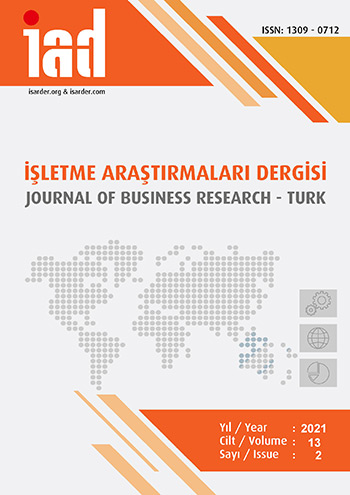The Effect of Internal Marketing Perceptive on Work Satisfaction: An Application on Academic Staff
DOI:
https://doi.org/10.20491/isarder.2021.1205Keywords:
Marketing, İnternal Marketing, Job SatisfactionAbstract
Purpose - The aim of this paper is to investigate the effect of internal marketing activities on job satisfaction of academic staff.
Design/methodology/approach - In this study, a questionnaire form was used as a data collection tool. The questionnaire form includes two scales: internal marketing and job satisfaction. The universe of this research is consisted of 1024 academic staff working in the central campus of Muğla Sıtkı Koçman University. The data used in this study were collected by questionnaires from employees and the collected data were transferred to computer environment and the data were analyzed with SPSS 22.0.
Findings - As a result of the analysis, it has been determined that internal marketing has a positive and significant effect on job satisfaction.
Discussion - Internal marketing, which is a part of modern marketing, can be expressed as considering the employees of an organization as internal customers and giving them as much importance as external customers. It is stated that many organizations still do not have information about this concept and how it should be implemented. The reason for this situation could be limited and insufficient research on the concept of internal marketing. In today's changing and developing competitive environment, organizations tend to try different applications other than marketing. One of these different applications is internal marketing. In an environment where market conditions are constantly changing, organizations have to be much more robust than their current situation in order to compete and survive. One of the ways to achieve this is undoubtedly to benefit from internal marketing practice (perceiving employees as internal customers and satisfying their requests, needs and demands).
Downloads
Published
How to Cite
Issue
Section
License

This work is licensed under a Creative Commons Attribution-NoDerivatives 4.0 International License.





